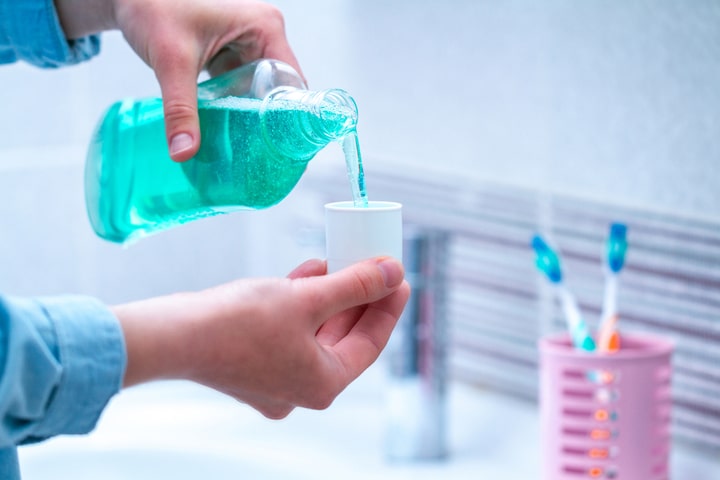
What are mouthwashes used for?
There are many different types of mouthwashes on the market as well as some you can make at home. They are used to control and treat different oral problems.
What ingredients are in a mouthwash?
The active ingredients vary depending on the purpose of the mouthwash. The most common ingredients are essential oils, flouride, salt, bicarbonate soda, peroxide and chlorhexidine gluconate – but this list is by means exhaustive.
Are all store-bought mouthwashes basically the same?
No, as you can see from the list above there is an extraordinary array of ingredients which perform different functions. There are basically 3 types of mouthwashes:
- If we are using mouthwash to have lovely fresh breath, then we are buying a mouthwash where the main ingredient is essential oil. These work by breaking down the cell walls of the bacteria. They are not effective in removing 99.9% of bacteria in the mouth, despite the advertising claims. If you have a good dental routine I personally don’t recommend these mouthwashes, however there is no harm in their use.
- The second type of mouthwash you can buy are the fluoride rinses. These can provide an additional dose of fluoride to strengthen the outside of your teeth and make them more resistant to bacteria. What needs to be noted is that these mouthwashes are LEAST effective straight after you have brushed your teeth. Brushing with fluoridated toothpaste has already provided an added layer of protection to your teeth, so adding another dose so soon after brushing doesn’t do much. These mouthwashes are most beneficial to people who are suffering from reflux, vomiting, or are at high risk of cavities.
- The last category are the stronger antiseptic mouthwashes which you would normally purchase at the pharmacy; examples include peroxide and chlorhexidine gluconate (also known as CHX) rinses. They should be used only for short durations for acute gum infections and are best to be advised by your dentist or other health professional.
How about at home mouth rinses?
These can be effective. Salty warm mouth rinses are great to use as simple antiseptics when there is a mild infection. Salty mouth rinses are also great after a mild dental surgery. However if you have swelling, pus or significant infection, do not maintain their use without dental supervision. You may need something better suited to your condition.
A quarter of a teaspoon of bicarbonate soda and water make a great mouthwash to aid the saliva in bringing the mouth back to neutral. This is most often used for those who suffer from reflux or vomiting.
When is the most effective time to use a mouth wash?
The best time to use a fluoride mouthwash is when you are not brushing your teeth so it could be after lunch or a snack. Often the best time is when you feel your mouth needs that little bit of extra kick such as an interview or date.
As for antiseptic mouthwash, I suggest people only use these when there is a need (which is quite rarely).
Last thoughts?
The importance of plaque removal cannot be overstated. Mechanical removal of the bacteria such as brushing and flossing are vital in preventing cavities. Mouth rinses can serve as an adjunct when dealing with a specific concern, but they are an adjunct only and not a replacement for good dental practices.
 Dr Teodora Kent is an Australia trained dentist based at Smilefocus.
Dr Teodora Kent is an Australia trained dentist based at Smilefocus.
Dr Teodora sees adults and children.
Call 6733 9882 to make an appointment.
